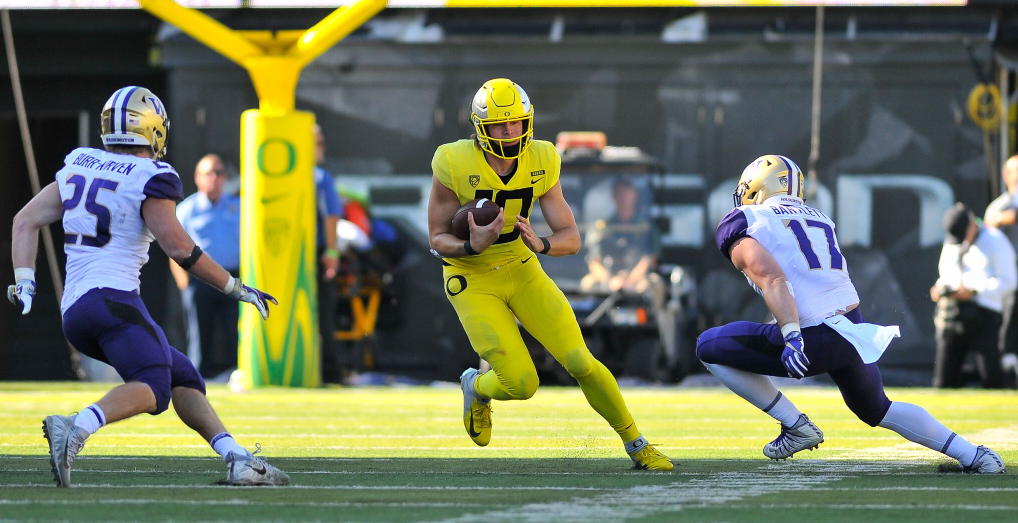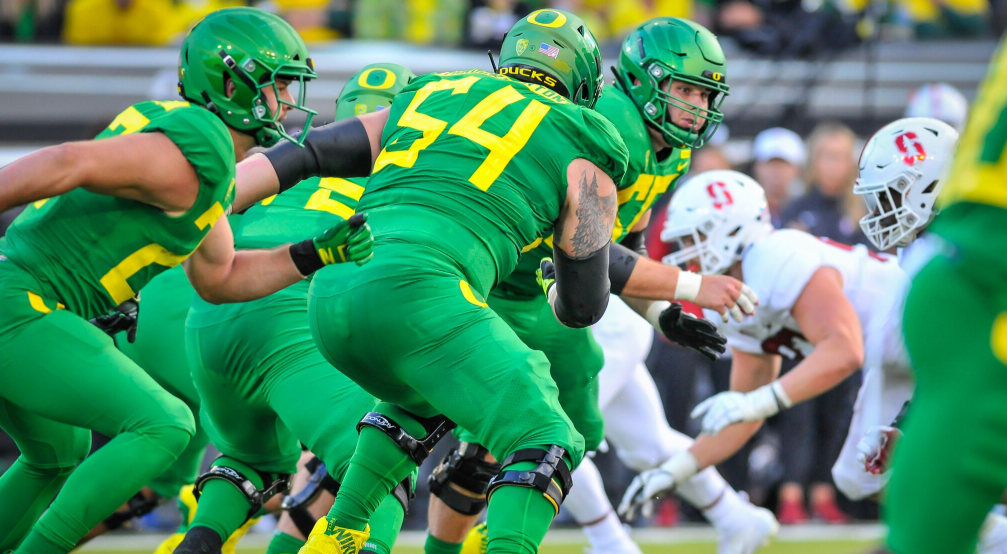The NCAA is losing the publicity battle in its fight with the state of California over the subject of paying student athletes. Of course, this isn’t groundbreaking news. The NCAA hasn’t had good publicity in a while.
But for all its faults, the NCAA does do some things right, hard as they are to find. The NCAA is at least trying to implement academic standards and regulations by which student-athletes and schools must abide by in order to participate in NCAA-sanctioned events. Holding players and programs accountable for academics is a good thing. Let’s take a look at how the NCAA administers these regulations and determine whether or not it’s time to give the oft-criticized organization credit for once.
Academic Progress Rate
Every year, the NCAA determines a school’s Academic Progress Rate (APR) for its sports teams based on a simple formula. Don’t get the APR mixed up with the NCAA’s academic eligibility requirements, as that’s a different animal. The APR measures the success rate for the school, not the academic requirements for the student. The latter will be explained later on.
Here’s how the APR formula works:
* Each student-athlete receiving athletically related financial aid earns one point for staying in school and one point for being academically eligible.
* A team’s total points are divided by total points possible and then multiplied by 1,000 to equal the team’s Academic Progress Rate.
* In addition to a team’s current-year APR, its rolling four-year APR is also used to determine accountability.

Justin Herbert (No. 10) is perhaps the smartest player on the Ducks.
To give you an idea of where some college football programs fall on the APR rankings, here are a couple examples. (For 2019, the APR scores are compiled from grades earned during the 2017-2018 school year). Bringing up the rear, with a score of 936, is Florida State. At the top of the mountain, with a score of 997, is Air Force. Oregon’s score for 2019 is 971 (up from 969 in 2018), tied with Oregon State and Rutgers, all sitting at No. 54.
Why is the APR important? The NCAA can (and does) punish the schools that fall below a score of 930. The offending teams can face penalties, which include practice restrictions, shortened regular seasons and even postseason ineligibility. NCAA members chose the 930 standard because that score predicts, on average, a 50% graduation rate for a given team. In 2019-20, eight teams will be ineligible for the postseason due to their low Academic Progress Rates, down from 17 teams last year, but none in the sport of football.
Also, if there aren’t enough teams that finish the football season with a bowl-eligible six wins, teams that finish 5-7 are allowed to be play based on the school’s APR.
Student Academic Eligibility
To be academically eligible as a freshman for a Division I school, a student much have a GPA* of 2.3 and a 900 SAT or 75 ACT sum score. For each college year, the requirements change as follows:
By the START of sophomore year, you must:
• have a cumulative GPA of 1.8
• have completed 36 units
By the END of sophomore year, you must:
• declare a major
By the START of junior year, you must:
• have a cumulative GPA of 1.9
• have completed 72 units (40% of your total degree requirements)

Calvin Throckmorton (No. 54) is studying to become an orthopedic surgeon.
By the START of senior year, you must:
• have a cumulative GPA of 2.0
• have completed 108 units (60% of your degree requirements)
By the START of a fifth year, you must:
• have a cumulative GPA of 2.0
• have completed 144 units (80% of your degree requirements)
*Note that the NCAA does not use the GPA listed on transcripts, but instead calculates it using only NCAA-approved core courses.
While these regulations and requirements aren’t perfect, they at least show that the NCAA is making an effort to emphasize academic success. It’s easy to point out when the NCAA screws up, which admittedly is pretty often, but the organization should also be praised when it does something right.
Academic standards mean attending class as a student-athlete isn’t optional. The system is designed to actually benefit those who put at least a little bit of time and effort into their studies (crazy enough). Is that such a bad thing? Or is the NCAA somehow off-base with this, too?
BigDucksFan
San Diego, California Top Photo by Kevin Cline
 Andrew Mueller, the FishDuck.com Volunteer Editor for this article, works in digital marketing in Chicago, Illinois.
Andrew Mueller, the FishDuck.com Volunteer Editor for this article, works in digital marketing in Chicago, Illinois.
These are articles where the writer left and for some reason did not want his/her name on it any longer or went sideways of our rules–so we assigned it to “staff.” We are grateful to all the writers who contributed to the site through these articles.


